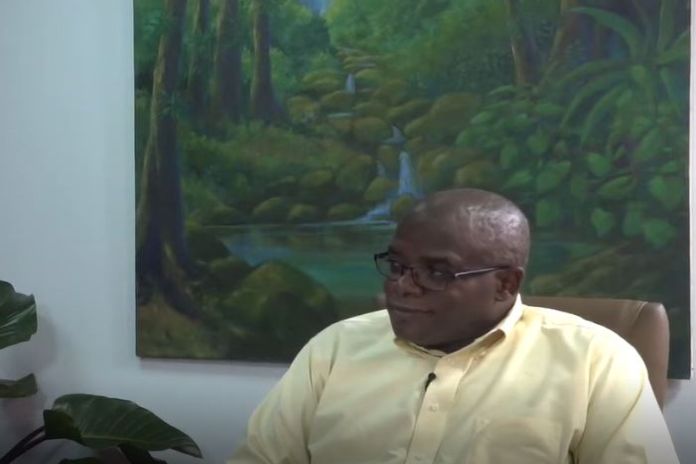By Caribbean News Global contributor
ROSEAU, Dominica – The government of Dominica has reaffirmed its commitment to make housing a priority for citizens, the Dominica Housing Recovery Project will construct 600 homes, scheduled to be completed by 2023.
Project manager for the Dominica Housing Recovery Project, Nicholas Bruno, said: “The project was designed in such a way to not only provide housing but also to strengthen the construction sector. There’s an element if the project that speaks heavily to supporting the physical planning department, to improve their infrastructure and to provide institutional strengthening considering that post Maria we had significant loss in the housing sector, it was felt that they also needed the support to help in the rebuilding effort. So, the project was developed along the lines. The main development objective of the project was the replacement of house damaged to the vulnerable groups, enhance the resilient building practices in the sector by working with contractors and ensuring that the codes were adopted and applied and to provide support to the people.”
Bruno explained: “The project calls for the development of a Management Information System (MIS) and we have actually developed that system. The MIS is meant to manage the process from application to final construction; so, everything will be processed through the MIS. However, we have various procedures, so we have professional staff to help with those. We have also the design and supervision firm which will be responsible for finalizing the designs as well as supervising every construction.”
Over the years the government has assisted thousands of individuals with the construction and rehabilitation of homes through the government housing revolution. This programme on the other hand differs slightly as government looks to empower small homeowners.
[Housing Dominica continues to deliver under CBI programme]
“The difference in scope is on two levels. One level is very targeted. It is targeting small homeowners who lost their houses and you want to re-empower them. And the second part of the level is developing the building sector itself. So, while the project does provide support for homeowners, it also provides support for institutional strengthening of the legislative framework. It also provides some sort of training through execution for the builders and contractor to ensure that they follow the resilient building practices. So, it does provide repairs to houses, but it also goes a little deeper in the whole infrastructure of construction and how we can improve that,” the project manager noted.
“The project is targeted to residents and it has a number of criteria that you need to meet in order to qualify to be a beneficiary. One of it was that your house needed to be five hundred square feet or less. You would have had to have no endurance on the house. You would have had to be living in the house and the house would have had to be your primary residence. We had a criteria that if you had received prior support then you would not have qualified. That has since been amended to support not exceeding EC$ 10,000,” Bruno said.
Prime minister Roosevelt Skerrit delivering his budget address for the 2020/2021 fiscal year said: “This government’s commitment to housing the nation is unparalled anywhere in the world, we have continued to transform and improve the housing conditions of thousands of our citizens. The people of Dynamic Dominica will be properly housed, and our national housing and property stock will be amongst the highest quality and most hurricane resilient in the Caribbean.
As we accelerate the housing the nation programme in fiscal year 2020/21, the ministry of housing and urban development will receive an allocation of $117.4 million.
Related: The road to Dynamic Dominica: Fostering economic resilience





